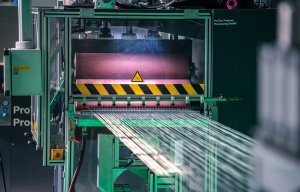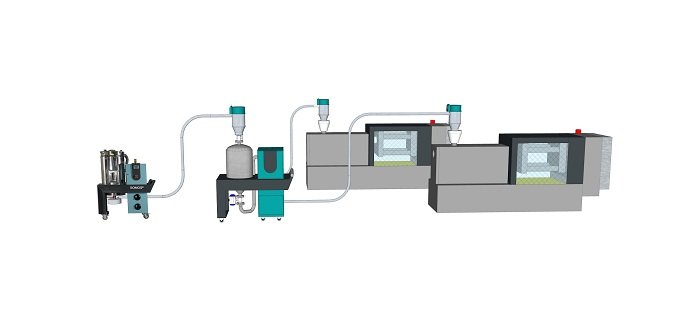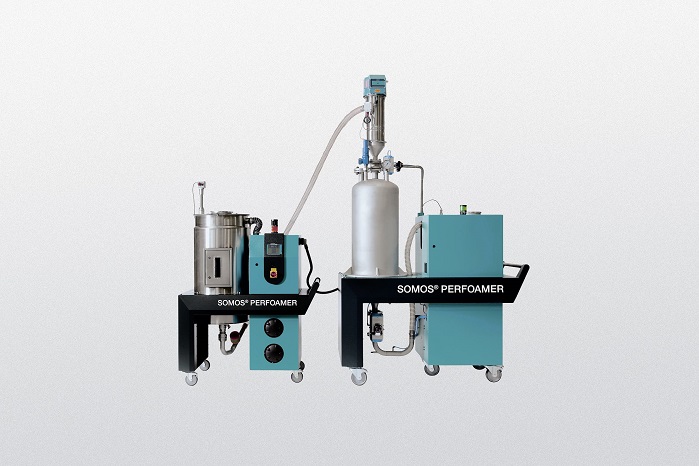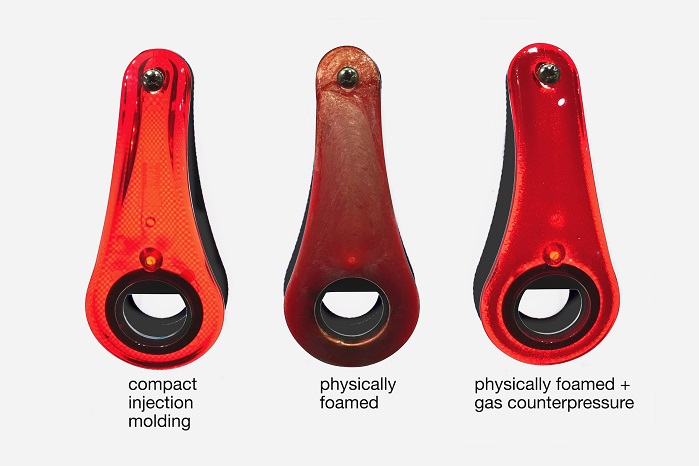
Two premieres for ProTec at K 2019
The company will be carrying out live foaming demonstrations using the Somos Perfoamer at Fakuma.

25th July 2018
Innovation in Textiles
|
Bensheim
ProTec Polymer Processing is premiering the Somos Perfoamer manufacturing solution at this year's Fakuma, an international trade fair for plastics processing, which takes place from 16-20 October in Friedrichshafen, Germany.
This enables the new Plastinum Foam Injection Molding process presented by Kunststoff-Institut Lüdenscheid and Linde in 2017 to be used for physically foaming plastics parts on an industrial scale. ProTec's innovation includes all the components for drying and temperature adjusting polymer pellets, loading them with CO2 under pressure and then feeding them to any desired injection moulding machine, which generally requires no modification.
The company will be carrying out live foaming demonstrations using the Somos Perfoamer and an Engel e-victory 310/80 injection moulding machine. It will also be showing smart, Industry 4.0 capable Somos components for efficient conveying, drying, dosing and mixing as well as presenting its LFT pultrusion lines for manufacturing long fibre reinforced thermoplastics.
“Thanks to the Somos Perfoamer, a wide range of users can now make use of the innovative foaming process which combines the advantages of the simple handling typical of chemical blowing agents, with the high foaming pressure of physical processes,” the company explains.

“Since good foaming results are achieved even at low wall thicknesses, considerable material savings can be made. For example, under laboratory conditions, it has proven possible to cut polycarbonate consumption by up to 60%, polyamide GF30 consumption by up to 16% and mineral reinforced polypropylene consumption by up to 37%. Virtually any usual polymers can be used, including bio-based and engineering materials and composites such as glass fibre reinforced polyamide.”
The Somos Perfoamer shown at Fakuma is designed for mobile use, is easy to transport and can be used on different injection moulding machines at the same time without any problem. It is made up of a conditioner in which the pellets are dried and then adjusted to temperature, an autoclave in which it is impregnated together with an associated CO2 supply and a buffer tank for the material.

Integrated conveyors transport the material through the various stations to the injection moulding machine. The Somos Perfoamer is centrally controlled on the conditioner. The Industry 4.0 capable controller is equipped with numerous interfaces. It can also be integrated into and operated from an injection moulding machine.
Its modular structure means the Somos Perfoamer can easily meet changing requirements and be expanded with additional components. As a result, output volume can easily be scaled to supply different sizes of injection moulding machines or a number of machines at the same time.
The demonstration system at the booth can supply a throughput of up to 59 kg/h of polycarbonate or up to 45 kg/h of polypropylene. The system will be demonstrated live manufacturing bottle openers from a variety of polymers with a shot weight of 42 grams. Since the bottle opener also has a metal insert, the overall cycle time is 135 seconds.

Business intelligence for the fibre, textiles and apparel industries: technologies, innovations, markets, investments, trade policy, sourcing, strategy...
Find out more